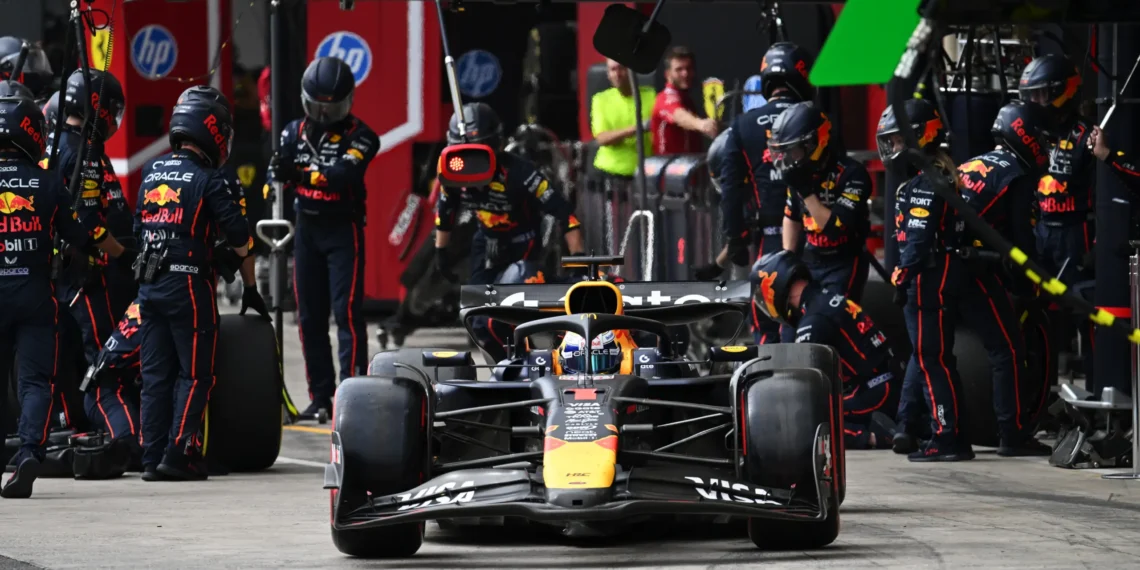McLaren Raises Eyebrows Over Red Bull’s Controversial Engine Switch for Verstappen
In a stunning twist that has sent shockwaves through the Formula 1 community, McLaren is raising serious questions about Red Bull Racing’s audacious decision to swap out Max Verstappen’s engine during the São Paulo Grand Prix. Speculation is rife as to whether this high-stakes gamble aligns with the stringent cost cap regulations imposed on the sport.
Max Verstappen, the four-time world champion, showcased his extraordinary driving skills by rocketing from the pit lane to a remarkable third place finish, despite facing a puncture early in the race. This impressive comeback has ignited fierce debate surrounding Red Bull’s strategy for managing engine-related penalties. Following a disastrous qualifying session where both Verstappen and Yuki Tsunoda were knocked out in Q1, Red Bull took the bold step to install a new power unit in Verstappen’s car, forcing him to start from the pit lane.
This dramatic engine change has not gone unnoticed. Andrea Stella, McLaren’s team principal, has openly questioned the rationale behind Red Bull’s decision. He expressed his concerns about the implications of such a move, particularly regarding its potential impact on the $135 million cost cap that governs spending in F1. “For performance reasons, I think introducing a new engine nowadays is questionable,” Stella stated, hinting that McLaren would never make such a risky choice. “Normally, these engines don’t show much degradation with mileage.”
Stella further elaborated, “Accepting a penalty or a loss of positions for a performance-driven engine change typically doesn’t pay off. The performance gains don’t usually justify the positional losses.” This raises significant doubts about whether Red Bull’s engine change was genuinely necessary or if it was a tactical maneuver to regain competitive edge.
Intriguingly, Stella pointed to the regulations regarding power units: if Red Bull’s engine swap was indeed for performance enhancement, it could fall under the cost cap, complicating their financial landscape. “If the engine was changed for performance reasons, it should go into the cost cap,” he argued. “We need to see if that’s the case or not. It’s all on Red Bull’s side to clarify.”
The ramifications of this engine swap extend beyond financial implications; they challenge the integrity of the sport’s regulations. As fans and teams alike await clarity, one thing is certain: the São Paulo Grand Prix has sparked a fierce debate that could reshape how teams navigate the complex world of engine management and cost control in Formula 1.
As the drama unfolds, discussions continue not only about Verstappen’s impressive recovery but also about Lando Norris’ standout performance and the challenges faced by rookie Oscar Piastri. This weekend in Brazil may have set the stage for a thrilling battle off the track as much as on it. Will Red Bull’s engine choice prove to be a masterstroke or a costly miscalculation? Only time will tell.










